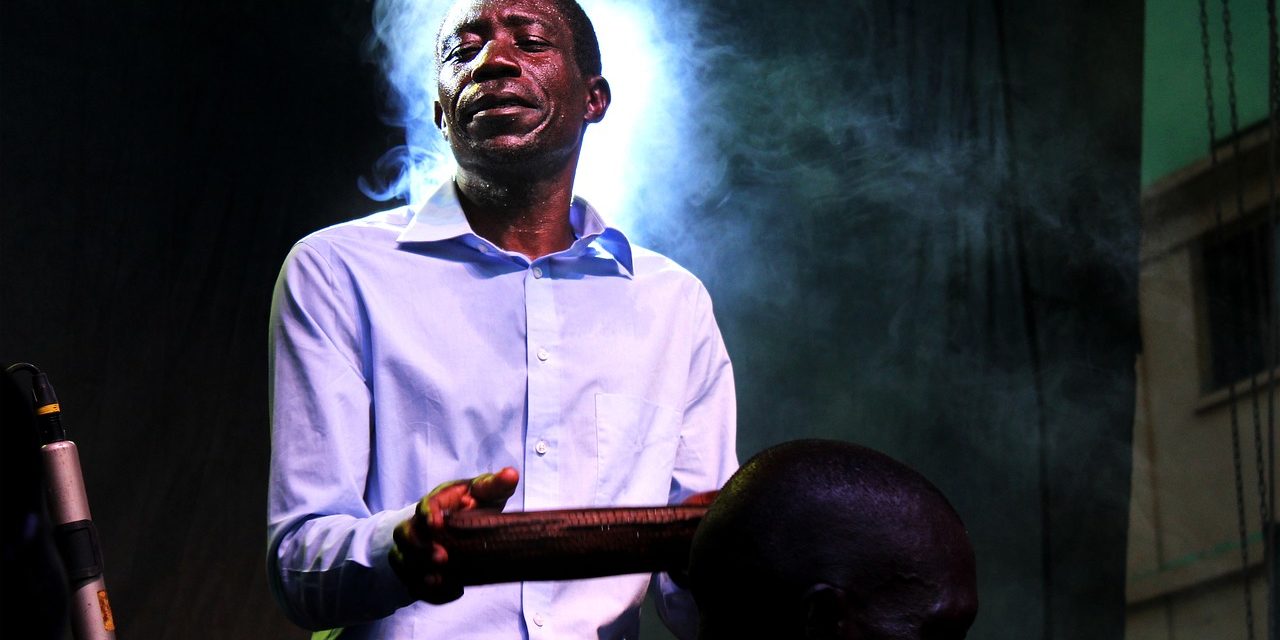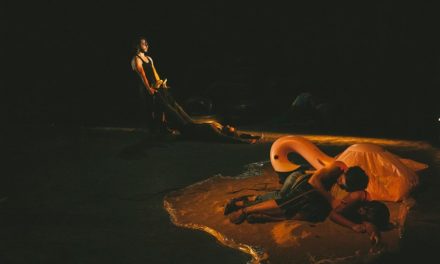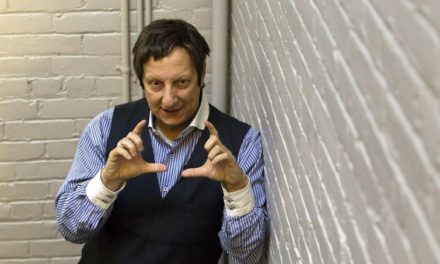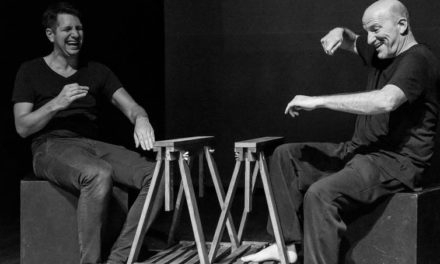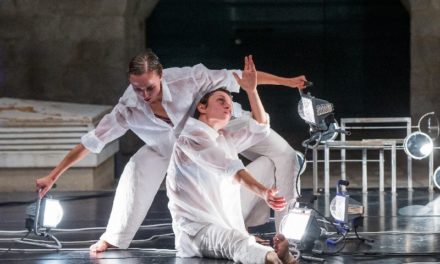Can rhythm in theatre performances be sustained?
Composing a moist and spicy story could be quite engaging. It involves a lot of mind drills and research, a lengthy journey to embark on but the wind-down results are always worth it especially when the piece is creatively marshaled.
It is always an exciting occasion when I go to the theatres to watch good plays notched with present-day realities. The experiences and effects are such that chills my spine afterward. For any piece of theatre to be termed as terrific, there must be a flow of rhythm that guides it through every phase–from the scratch of writing through to the production level; otherwise, it’s just a mere waste. The playwright consciously builds the tempo by instilling creative representations of incidence conveyed through the train of words bringing us into his or her world with strong persuasions just to show us the bees in the bonnet.
The struggle to build these rhythms is usually a difficult task that every ingenious playwright must conquer with evidential proofs welded in the plot, setting, costuming, characters, language, music, and other relevant areas. But often times, after a successful dominance by the playwright, the play becomes a bland due to a halt of the flow of its rhythm. These gaps (halts), among other major factors, usually sprout from artistic directors and then actors.
Ever wondered how a beautiful play (story) can be misconstrued by an audience after being watched in the theatres? Ever wondered how also a play (story) can be conveyed without the audience reading the script or longing to read the script for justifications? These questions can only be answered by the directors or actors performing the play.
Theatre directors have the responsibility for the practical and creative interpretation of a dramatic script from the design and pre-production stages, right through to the final performance. However, the essence of projecting a play by a director is not just about story-staging because most people who have some brains and a definite feel for theatre can do same. It goes beyond that. It deeply involves first, establishing the congruence of beliefs that exist between the playwright and the director. This makes the director respond strongly to the spick-and-span concentrated theatricality in the scripts with zing contributions from him that resonates with the playwright’s as it is the director’s work to narrow the possible meaning that must be effectively communicated to the audience.
In today’s Nigerian theatre space, we find all kind of persons flaunting directorial garbs with unrecognized precedents who of course aren’t concerned about the philosophy and theory behind their directorial styles because they think it to be another business rather than a creative call. According to Dr. Abdul Rasheed Adeoye of the Department of Performing Arts, University of Ilorin, Kwara State–Nigeria, “the major mistake people make is to think that anybody who has a script can direct.” This is one of the major reasons responsible for the interception of rhythms in theatre performances.
Directors should not only be concerned about aiming for a result but also, be concerned with the process and experience of the playwright’s works. They must work closely and personally with every playwright whose work they have. Being a director goes beyond reading new plays from text to directing, evaluating them, writing recommendations etc. What to do with the plays and more importantly, understanding both the intent of the work and what is hoped to be achieved should be the director’s primary motive. It is quite abysmal when directors or actors misinterprets or, worse, un-interpret a playwright’s world contenting themselves by just throwing everything up on the stage and hoping it comes out all right. It is therefore paramount that directors must find a play’s basic meaning, the style and rhythm with all other production elements knowing full well that whatever outcome he (The Director) desires, proceeds organically from that base. If a director would only get to know the playwright they are working with, chances are they will find a lot of clues right there to give them the meaning and style of the play.
A good reference worthy of emulation especially for the old and emerging playwrights and directors in Nigeria is the bubbly bond that exists between the prize-winning Nigerian author and playwright–Sefi Atta and the astonishing and admirable artistic director of the Jos Repertory Theatre–Patrick-Jude Oteh. A terse background profile of these two great African Artists is quite crucial for our discourse. Beginning from the rare:
Artistic Director: Patrick-Jude Oteh is the Artistic Director and Founder of the Jos Repertory Theatre, a not-for-profit independent theatre organization based in Jos, Plateau State, Nigeria. His chase for participatory theatre projects and continued impact on theatre for development and appreciation in Nigeria gave birth to the annual festival of theatre which holds in Jos and Abuja, Nigeria. The Jos Festival of Theatre is in its 11th year while the Abuja Festival is in its 3rd year. These festivals hold alongside a regular season of plays and radio drama productions aimed at fostering alternative paths of dialogue. He holds a Doctorate in Theatre Arts from the University of Ibadan and Fellowships with the John F. Kennedy Centre for the Performing Arts, Washington DC and the National Association of Nigerian Theatre Arts Practitioners. He uses the theatre to confront issues which affect us daily producing plays from both local and international repertory. His theatre credits include works from various playwrights such as Wole Soyinka, Peter Luke, Jean Anouilh, August Wilson, Tennessee Williams, Vaclav Havel, Femi Osofisan, Lonne Elder III, Charles Fuller, William M. Alder, Miguel Mihura, Pedro Antonio De Alarco, Jacinto Benavente, Garcia Lorca, Miguel de Cervantes, Aime Cesaire, Wale Ogunyemi, Ngugi wa Thiong’o, Lope de Vega, Ahmed Yerima, Arthur Miller, Sefi Atta, and stage adaptations of novels by Chinua Achebe and Adam Zamenzad. The company’s outlook is broadly liberal and his embrace of universal themes as a director is what stands him out in the hordes.
He has been involved in the formation of the 1st Arts Management Center in Nigeria and his areas of specialty span acting, dancing, and directing.
Playwright: Sefi Atta is a Nigerian native that illuminates the African Culture and Tradition through her creative ability as a writer. She qualifies as a Chartered Accountant in England, a Certified Public Accountant in the United States, and holds a Master of Fine Arts in Creative Writing. Sefi Atta has several works to her credit in various genres. They include, Novels: A Bit Of Difference. Swallow, Everything Good Will Come; Stage plays: Last stand, An Ordinary Legacy, The Naming Ceremony, Hagel Ouf Zamfara, The Cost of Living, The Engagement, Death Road, etc; Radio Plays: The Wake, A Free Day, Makinwa’s Miracle, The Engagement.
Atta was a Juror for the 2010 Neustadt International Prize for Literature, and has received several literary awards for her works, including the 2006 Wole Soyinka Prize for Literature in Africa and the 2009 Noma Award for Publishing in Africa. In 2015, a critical study of her novels and short stories, Writing Contemporary Nigeria: How Sefi Atta Illuminates African Culture and Tradition, was published by Cambria Press. Also as a playwright, her radio plays have been broadcast by the BBC and her stage plays have been performed and published internationally.
The duos knowing their wits have practically demonstrated over the years, the true meaning of sustaining theatrical rhythms in their works. They both share the idea that theatrical presentations of plays are much more than the actual content of the play. Having insight that effective collaboration between directors and playwrights presents the text in its theatrical form for view by an audience. The artistic director, Patrick-Jude Oteh believes that the playwright’s vision controls the play but the production is a collectively created product as the director usually leads the coordination of this creative effort which provides the impulsion to artistic consummation.
In retrospect, it would be foolhardy to have a performance piece in the hands of charlatans who wear the priestly robe of directors breaking the eleventh commandment–“Do not interrupt the rhythm*!”
*Rhythm here refers to the timing, measures, and place of the drama. It also means the beat or tempo of a performance. Rhythm should never be the same throughout performances regardless of how long. It should follow the cadence of the emotional state of one or more characters or the ambiance of the performance at particular moments.
This post was written by the author in their personal capacity.The opinions expressed in this article are the author’s own and do not reflect the view of The Theatre Times, their staff or collaborators.
This post was written by Umoren Ubong David.
The views expressed here belong to the author and do not necessarily reflect our views and opinions.

